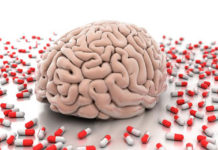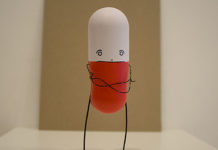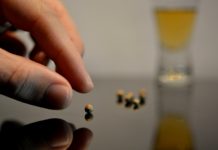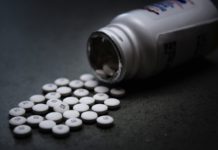“ADHD Drugs Could Harm Kids’ Sleep”
Children diagnosed with ADHD who are prescribed stimulant drugs have more sleep problems than those with ADHD that do not take these drugs.
“Patients Unwilling to Consent to ECT”
More than one-in-10 forms authorising ECT received by the Mental Health Commission (MHC) between 2013 and 2015 reported that the patient was unwilling to consent...
Me, Allen Frances, and Climbing Out of a Pigeonhole
Four weeks ago, after I wrote a blog about a study that concluded there was no good evidence that antipsychotics improved long-term outcomes for people diagnosed with schizophrenia, I was cc’d on an email that had been sent to a number of “thought leaders” about what I had written. At least as I read the email, it put me into the usual pigeonhole for critics of psychiatric drugs: I apparently was globally “against” medications, and I had displayed a type of simplistic “categorical” thinking. All of this led to my having an email exchange with Allen Frances, and his laying out, in his opinion, the considerable "collateral damage" my writings had done.
Review Calls for Critical look at Prescribing Antidepressant Drugs
The August issue of Psychotherapy and Psychosomatics published a review conducted by André F. Carvalho and colleagues regarding the literature around the long-term use...
The Effects of Antidepressant Exposure Across Generations: An Interview with Dr. Vance Trudeau
Dr. Vance Trudeau discusses his study's finding that antidepressants may have far-reaching, adverse effects that last up to three generations.
“Antidepressants Linked to Tooth Implant Failure, New Study Finds”
Researchers from the State University of New York at Buffalo (UB) found that antidepressants weaken bone growth which can disrupt procedures like tooth implants....
Many Foster Kids Are Still Being Prescribed Antipsychotic Drugs
Many experts expressed concern when the rate of antipsychotic prescriptions to children in foster care showed a rapid increase, peaking in 2008, and new recommendations and policies have tried to curb the use of these drugs. While the rate has plateaued, a new study points out that the “new normal” prescription levels are still dangerously high. The data reveals that almost one in ten children in foster care are currently being prescribed antipsychotic drugs with dangerous side-effects, many for diagnoses like ‘ADHD’ and disruptive behavior.
New Study Examines User Experience of Discontinuing Psychiatric Medications
Researchers find that support and self-care were helpful for users during discontinuation, but that mental health professionals were not very helpful.
Lancet Editorial Points to “Trouble with Psychiatry Trials”
While clinical trials make up the “bedrock of evidence-based medicine” in other specialties, psychiatry faces a number of both ethical and scientific problems related to its use of randomized control trials. According to a new editorial in The Lancet Psychiatry, the field of psychiatry research has particular problems with ethical issues in recruitment, inaccurate classification systems, and controversial placebo comparisons, and then, once the studies are finished, it often remains unclear what the “outcomes actually mean for people’s lives.”
Dateline NBC to Cover Child Psychiatric Overmedication Epidemic This Sunday
This Sunday, June 12 at 7pm (EDT) on NBCs Dateline will cover MIA author Steve Francesco's book, Overmedicated and Undertreated: How I Lost My...
New Research Suggests Brain Abnormalities in ‘Schizophrenia’ May Result From Antipsychotics
Study finds that reduced cortical thickness and brain surface area associated with 'schizophrenia' may result from antipsychotic drug use.
New Study Finds Brain Changes in Newborns Exposed to Antidepressants
A fist of its kind neuroscience study, published this month in Cerebral Cortex, found changes in the brain electrical activity of infants exposed to SSRI antidepressants during pregnancy.
New Research on Prenatal SSRI Exposure and Autism
Does maternal SSRI exposure increase the chances that a child will develop characteristics associated with Autism Spectrum Disorder (ASD)?
Lithium and Suicide: What Does the Evidence Show?
There appears to be increasing acceptance of the idea that lithium prevents suicide, and even that it can reduce mortality rates. For a toxic drug that makes most people feel rather depressed, this seems curious. I did wonder whether it might be having this effect on suicide by sapping people of the will to act, but the proposed effect on mortality seems completely inexplicable. A closer look at the evidence, however, suggests the idea is simply not justified.
Patients More Likely to Refuse Drug-Only Treatment, Study Finds
The American Psychological Association (APA) recently published a study finding that patients assigned to drug-only treatments were more likely to refuse treatment, and more likely to drop out before treatment completion, than patients assigned to psychotherapy only.
“New Pill for Boosting Female Libidos Off to a Slow Start”
Ed Silverman reports that only 80 prescriptions for Addyi, or Flibanserin, were filled in the drugs’ first two weeks on the market.
Article →
Therapy Gets More Effective Over Time While Antidepressants Decrease in Effectiveness
New review of long-term depression data finds psychotherapy more effective over time whereas antidepressants decrease in effectiveness.
Psychiatrists Overestimate Antidepressants, Underestimate Placebo
Recent meta-analyses of antidepressant clinical trials have revealed that up to 82% of the effects associated with the drugs may be attributed to placebo and non-medication factors. A new study examined the attitudes of psychiatrists toward these non-pharmacologic factors and found a large discrepancy between their beliefs and the empirical evidence.
Antipsychotic Trials Show Increasing Placebo Response and Declining Drug Response
A new review of antipsychotic trials conducted over the last 24 years finds that the placebo response rate is steadily increasing, and drug response is decreasing.
Infants Exposed to Psychotropic Drugs During Pregnancy At Risk
New research published in the July issue of The Journal of Clinical Psychiatry found that the use of mood stabilizers, antipsychotics, antidepressants, and hypnotics during pregnancy is associated with increased health risks to the infant.
Rise in Psychiatric Prescriptions With NOS Diagnosis
A “not otherwise specified” (NOS) diagnosis is often used when an individual may have some symptoms related to a psychiatric diagnosis but does not meet enough criteria to warrant a particular diagnosis. A new study, published online ahead of print in Psychiatric Services, reveals that the proportion of mental health visits resulting in such NOS diagnoses rose to nearly fifty percent, and that these diagnoses do not result in more conservative psychiatric drug prescriptions.
Suicide Rates Rise While Antidepressant Use Climbs
Multiple media sources are reporting on new data from the CDC revealing a substantial increase in the suicide rate in the United States between 1999...
Opioids May Cause Depression and Worsen Chronic Pain
“Converging lines of evidence now suggest that depression—a common comorbidity in the setting of chronic pain—may in some patients represent an unrecognized yet potentially reversible harm of opioid therapy.”
“Anti-Depressants for Teens: A Second Look”
Writing for the Harvard Health Blog, Dr. Nandinia Mani reconsiders the use of antidepressants in teens in light of the reanalysis of Study 329. ...
New Study Examines Successful Discontinuation of Antipsychotics
A new study to be published in the next issue of Schizophrenia Research examines patients suffering from a first-episode of psychosis who stop taking any antipsychotic drugs. The researchers attempt to identify variables that can serve as predictors of the successful discontinuation of antipsychotics. They find, for example, that those who discontinue the drugs have, on average, the same outcomes as those who stay on them, and that those who have better social integration are more likely to discontinue without relapse.




















